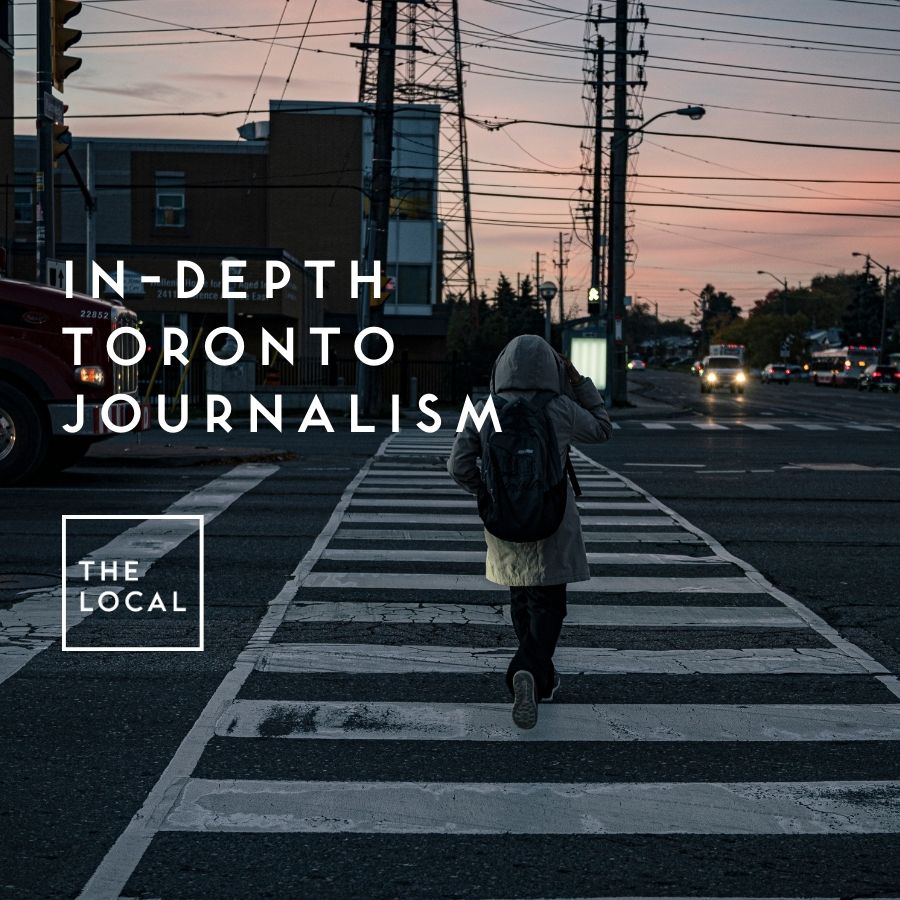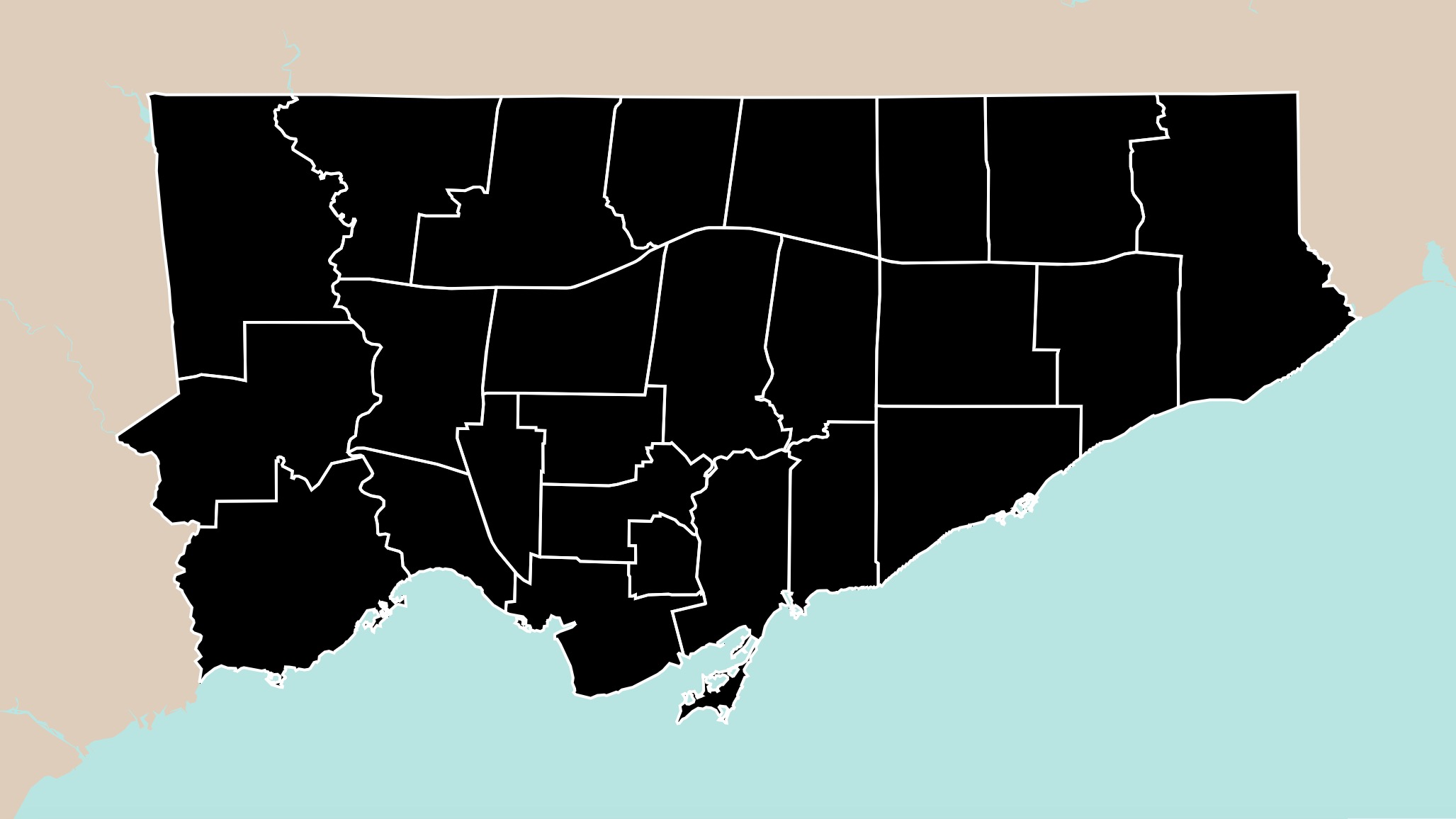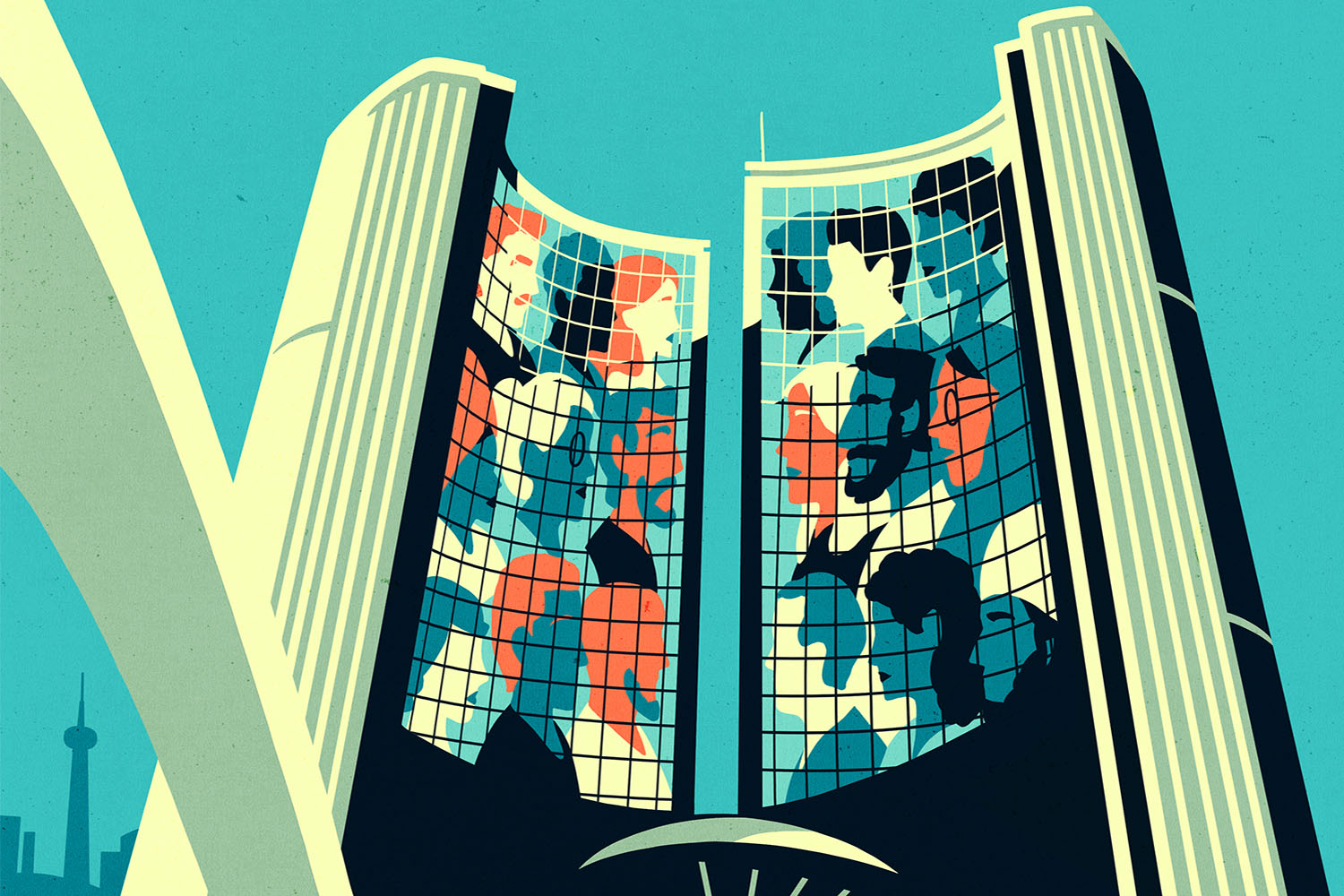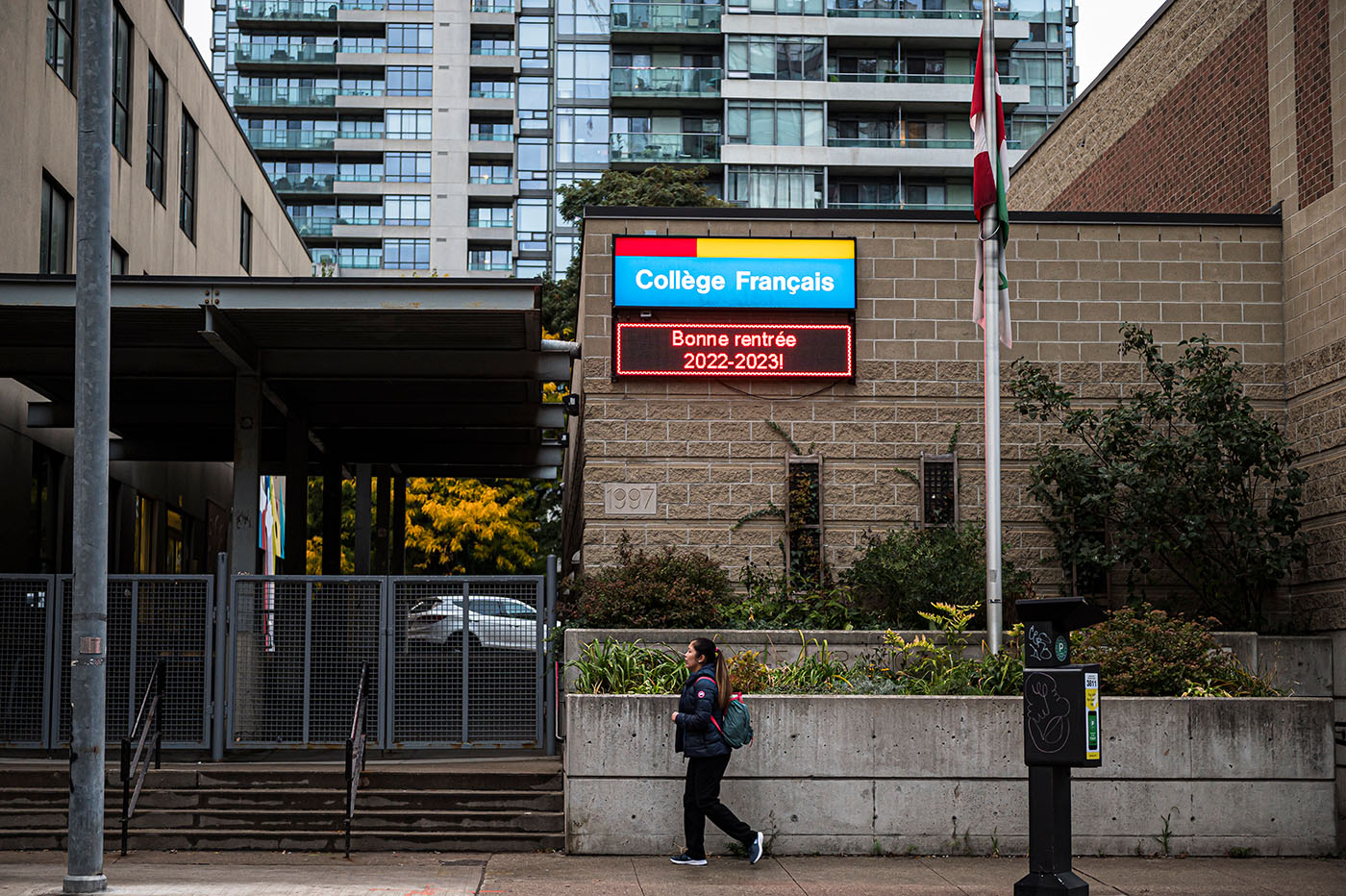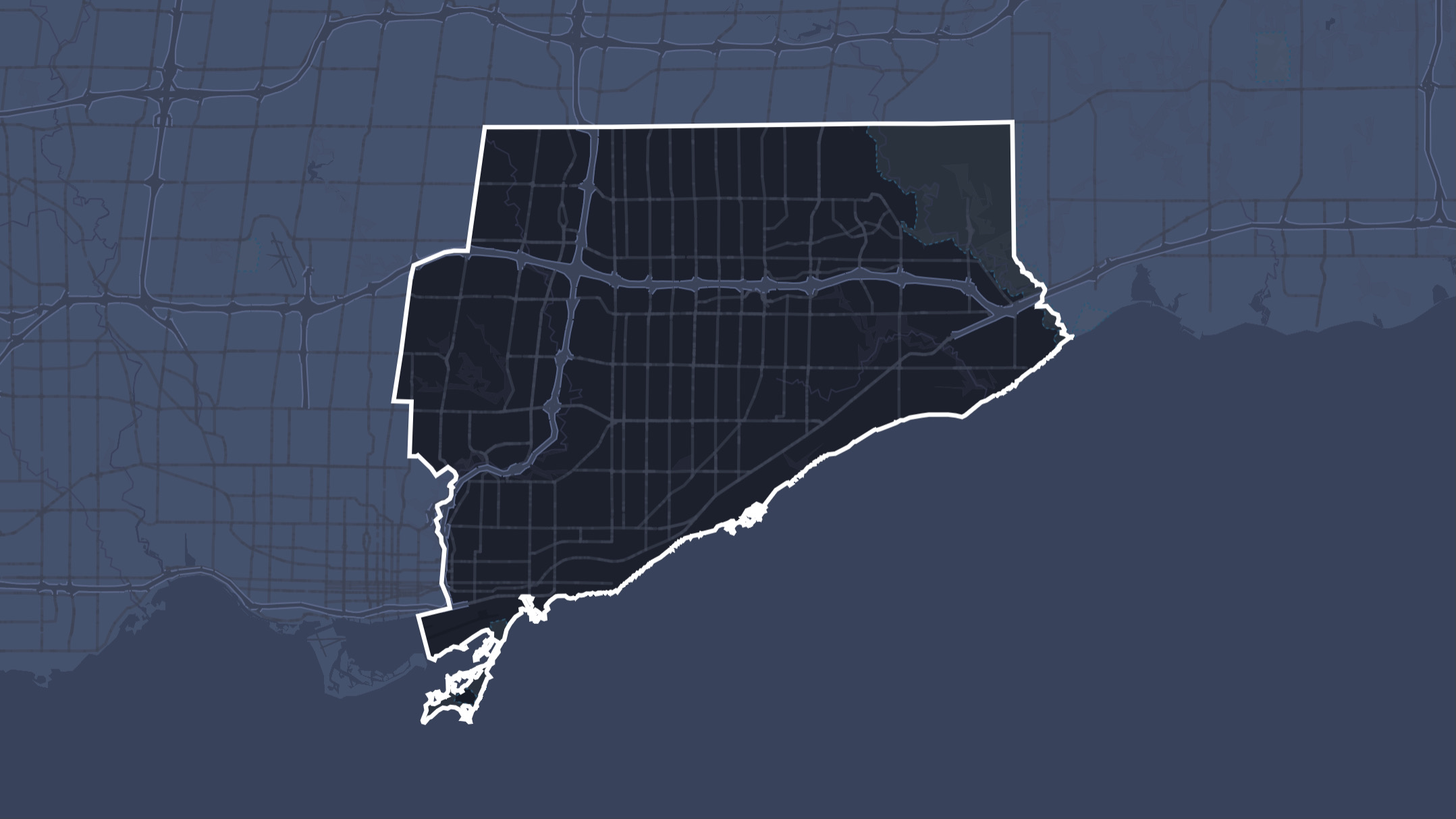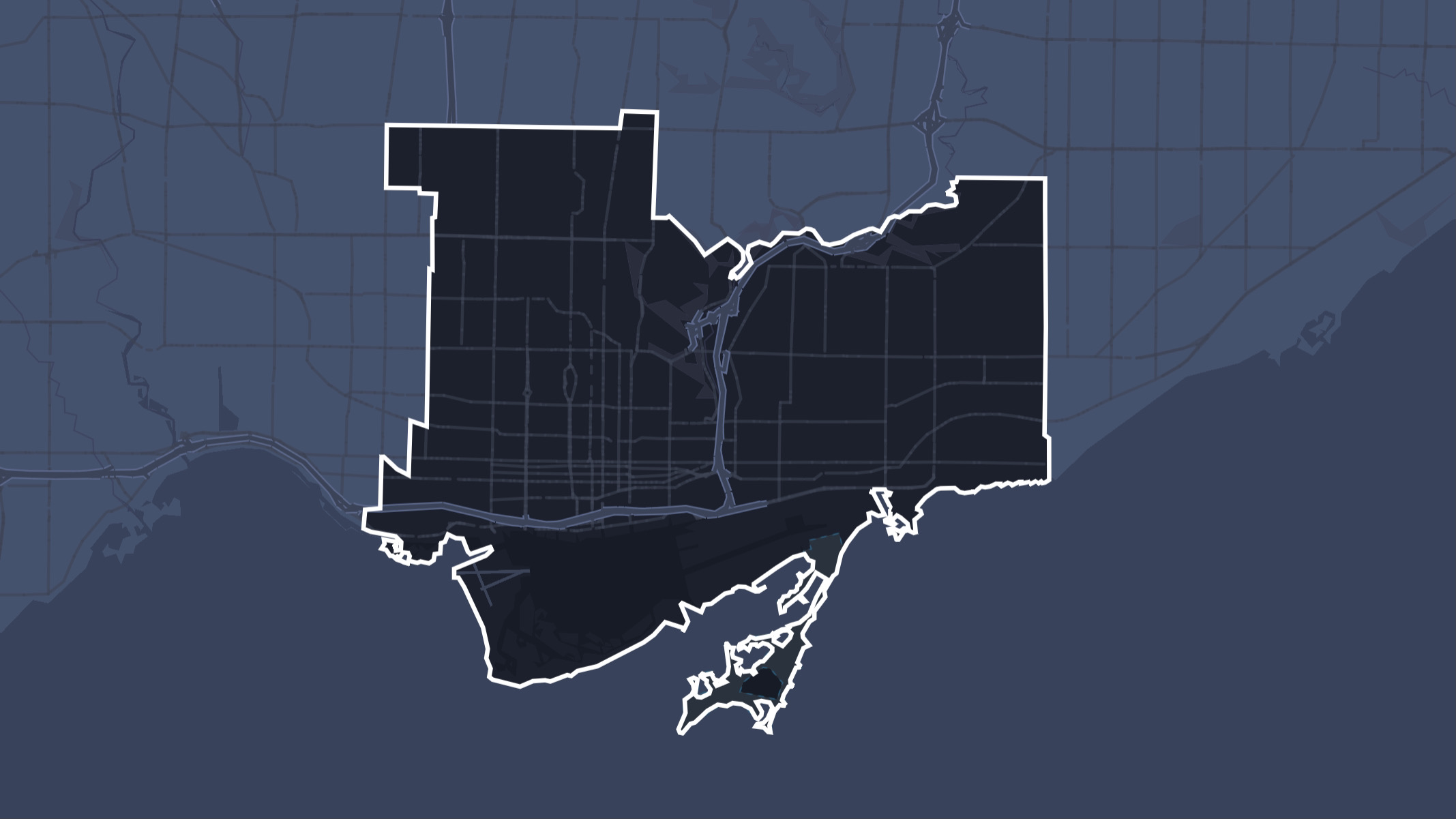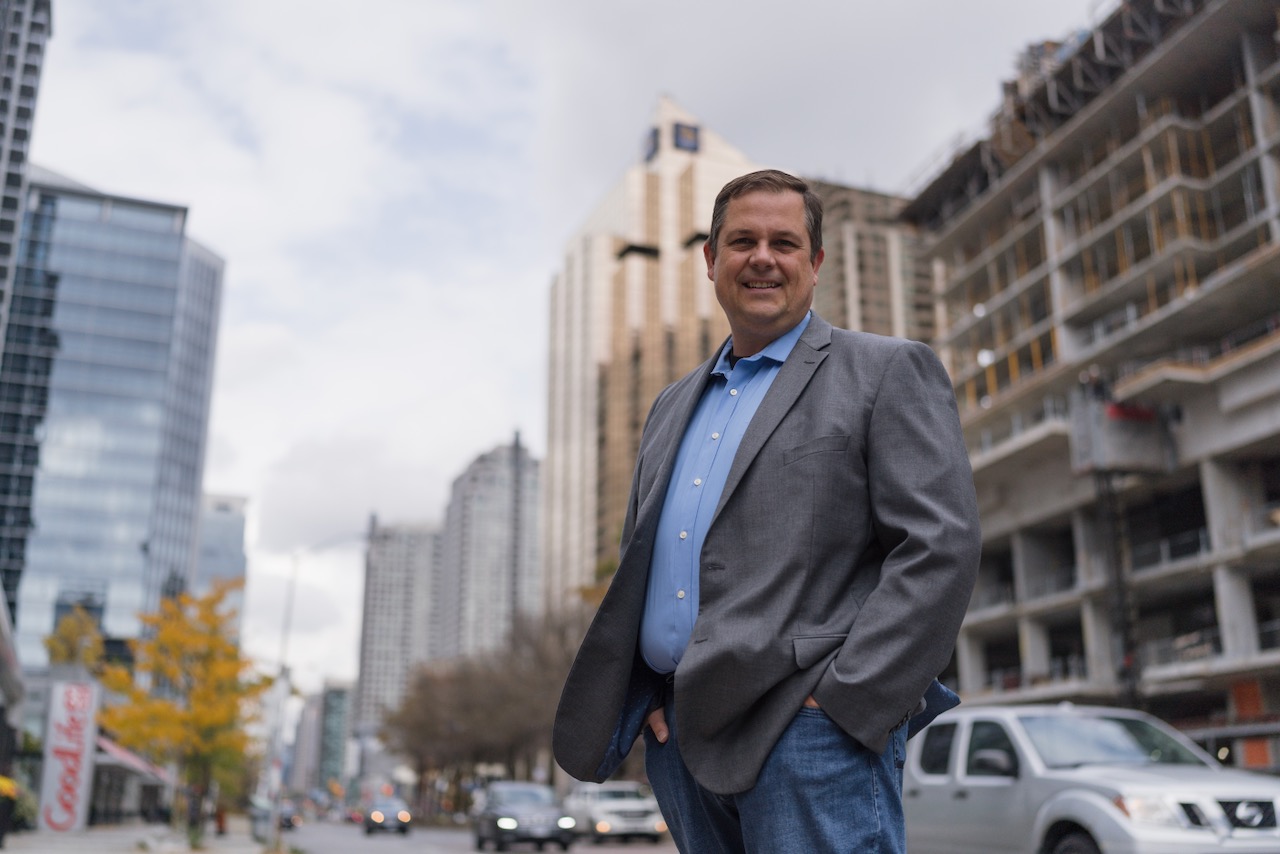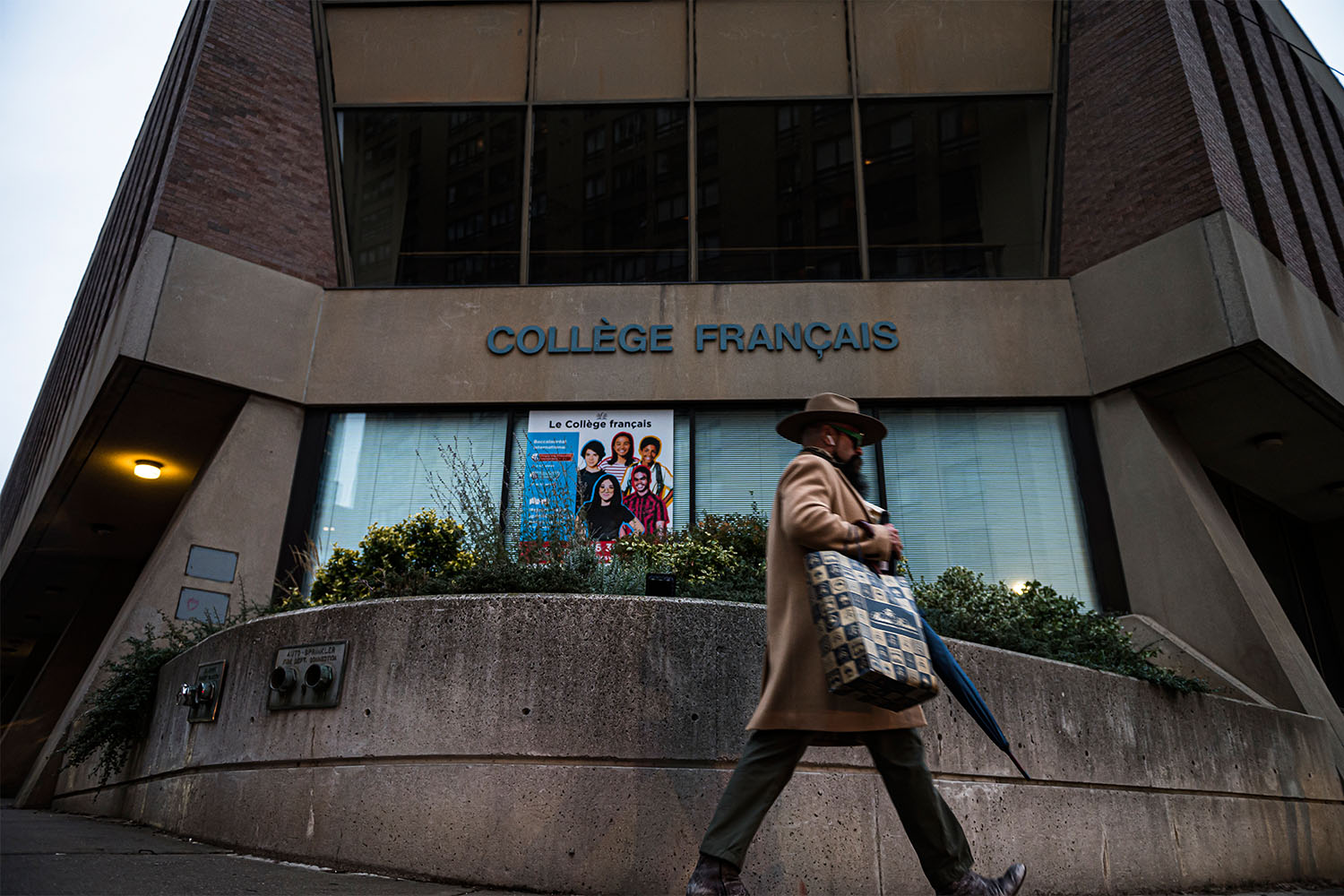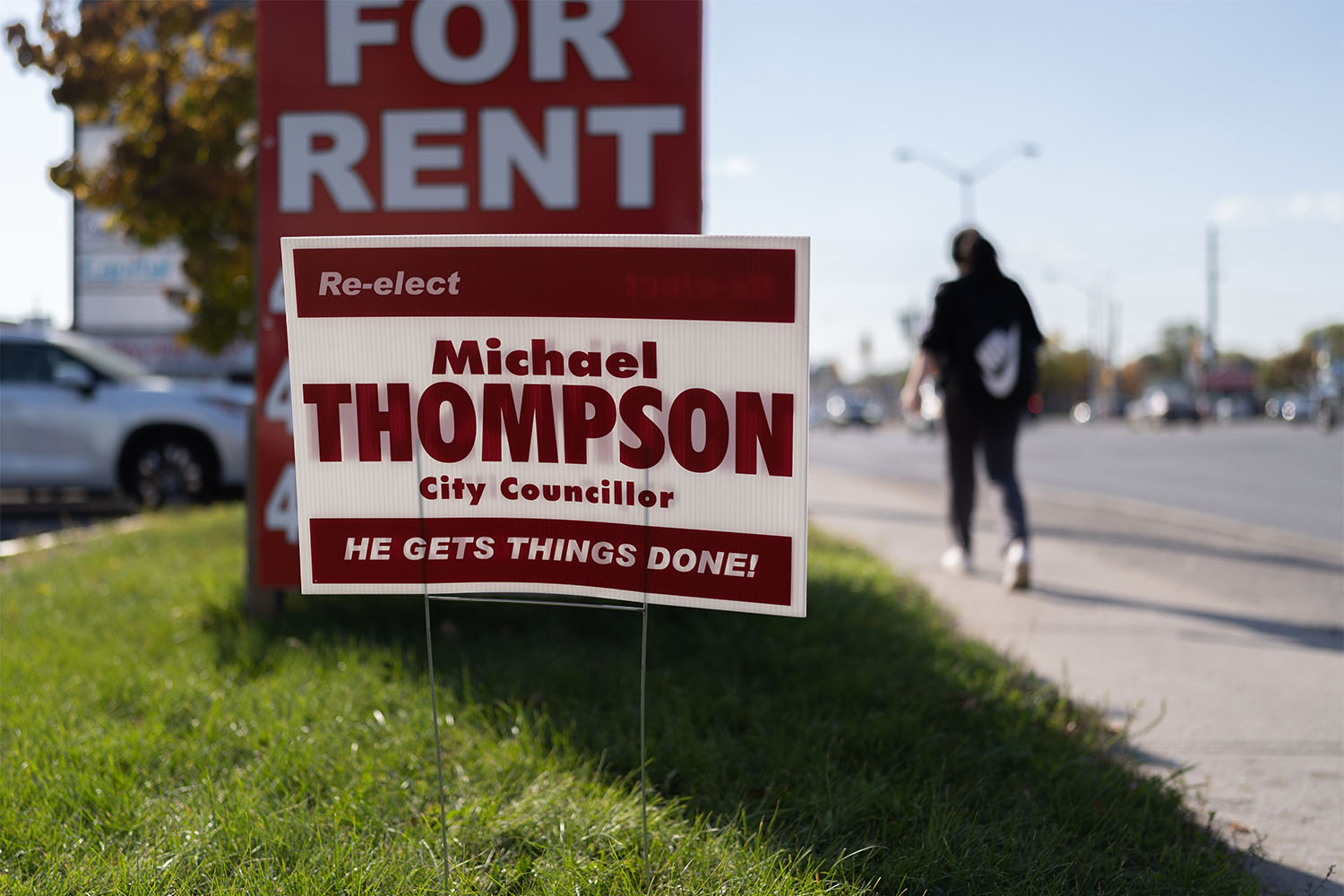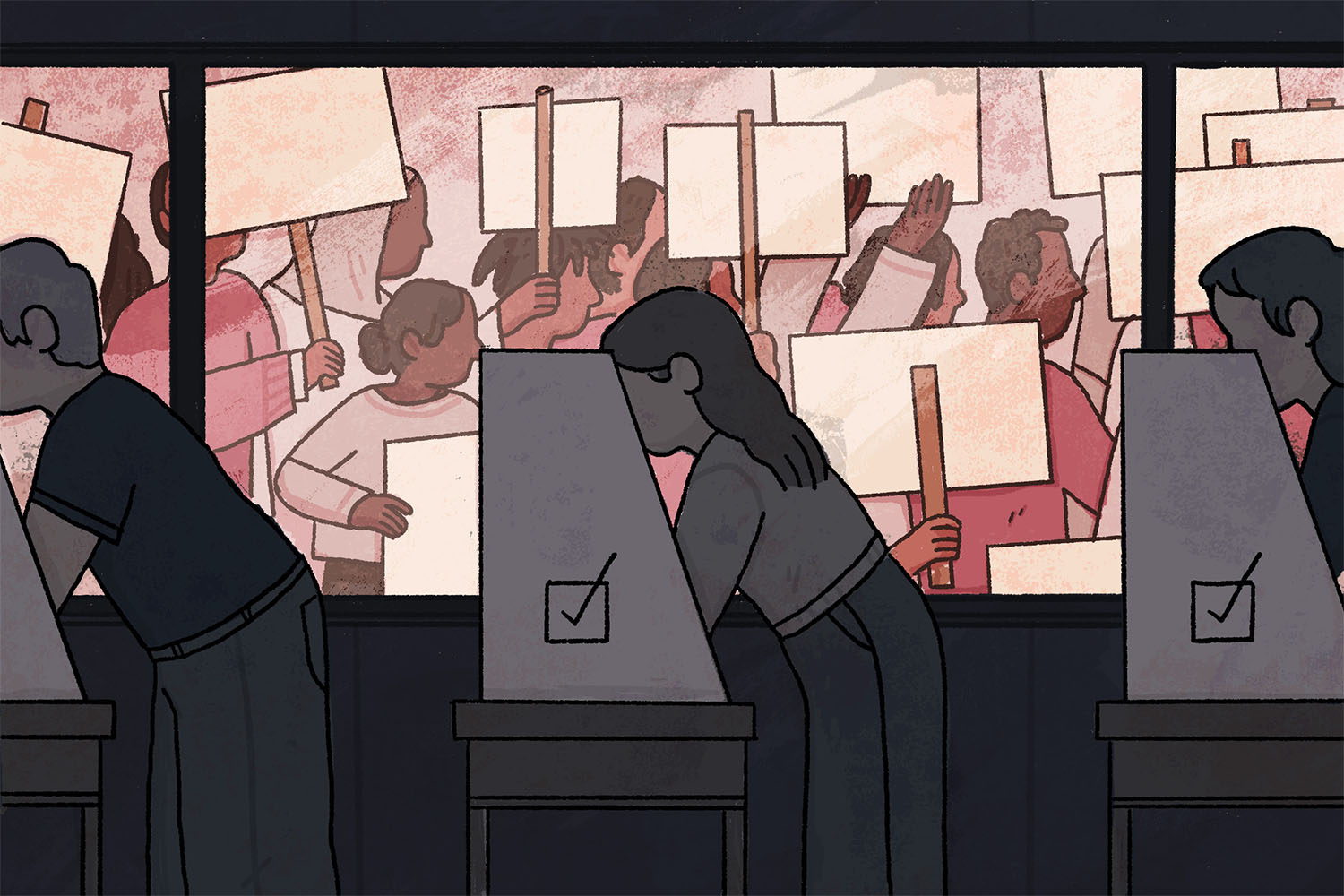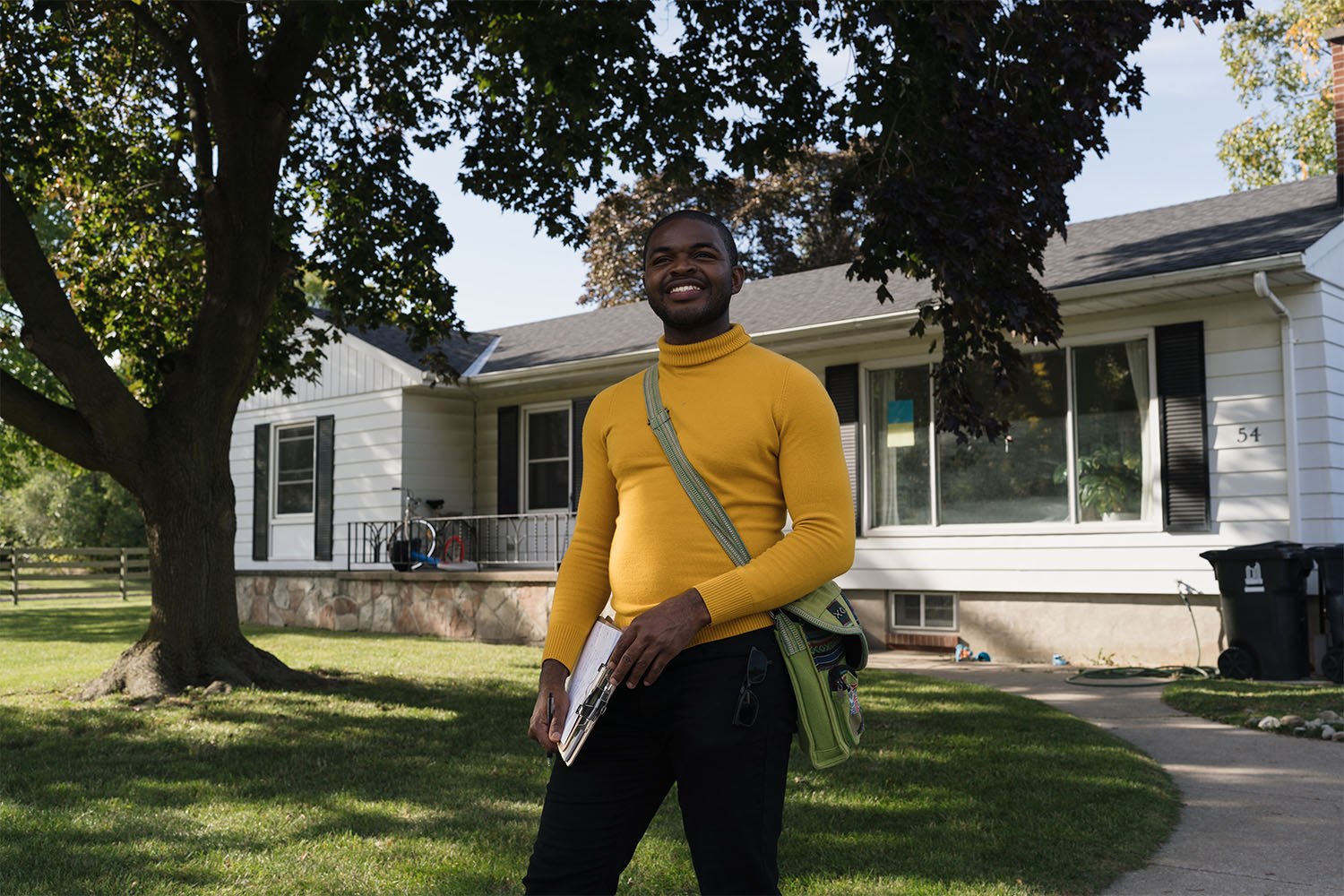John Tory has been elected to his third term as mayor of Toronto and will become the longest serving mayor in post-amalgamation Toronto.
Tory cruised to victory, receiving 62 percent of the vote and holding second place finisher Gil Penalosa to under 18 percent. Tory won the mayoral vote in all 25 wards. With just 29.2 percent of eligible voters casting a ballot in the mayoral race, voter turnout is well below the record low in 2018 of 40.9 percent.
Despite the resounding win, the results also showed the limits of Tory’s influence. The mayor spent the final week of the election campaigning with challenger Siri Agrell and incumbents Mark Grimes and Frances Nunziata. Grimes and Agrell were both defeated on Monday, and Nunziata barely squeaked past challenger Chiara Padovani, winning by just 94 votes. Other Tory allies the Mayor campaigned with in Willowdale and Davenport were also defeated at the polls.
All told, 17 of the 18 incumbents, including Tory, were victorious on election night, furthering Toronto’s notoriety as the city with the worst incumbency advantage in North America. Amber Morley’s defeat of Mark Grimes was the only exception.
With many councillors choosing not to run for re-election—and one, Cynthia Lai, dying just days before election day—the number of new councillors at city hall will mean that this session of council will look very different from the last. At a pivotal moment in the city, the next four years in Toronto will be determined by the path Tory chooses, given his significant new “strong mayor” powers, and how this new council chooses to work with him or push against him.
Mayoral Race
Tory’s victory was widely expected. No high–profile candidates opposed him, there were only two debates throughout the campaign, and enthusiasm never coalesced around any of Tory’s 30 challengers.
The majority of Tory’s voter base was in the inner suburbs.
Gil Penalosa—the planning expert and the founder of the urbanist non-profit 8 80 Cities who ran an energetic campaign of progressive ideas—came in second place with less than 20 percent of the vote. That was below 2018’s second place finisher, Jennifer Keesmaat, who was supported by 24 percent of voters. Penalosa’s base was centred around Toronto’s progressive downtown core; in the outer reaches of the city, his support was down in the single digits.
Chloe Brown, a project coordinator at Future Skills Centre, finished third with 6 percent. No other mayoral candidate amassed more than two percent of the vote.
New Faces in City Council
With eight wards without an incumbent, this election represented a rare opportunity to bring new faces to a council that has long been far less diverse than the city it leads.
In total, seven new councillors were elected (and two former councillors, John Burnside and Vincent Crisanti, who had been defeated in previous elections were voted back into power). Those new faces will make city hall a far more diverse place than it was last session. Chris Moise, Ausma Malik, Lily Cheng, Alejandra Bravo, Jamaal Myers, and Amber Morley are all BIPOC councillors, pushing the city’s political representation to better reflect the city itself.
In Davenport and Willowdale, Tory’s endorsements didn’t prove to be enough. Alejandra Bravo, a community organizer and think tank director, won by nearly 60 percent over her competitor Grant Gonzales, a current government relations manager and former lobbyist. This is Bravo’s third run for municipal office, in addition to a 2021 provincial campaign. In Willowdale, Lily Cheng defeated Markus O’Brien Fehr, Tory’s favoured candidate.
Much of downtown Toronto will have new representation, after progressive councillors Kristyn Wong-Tam, Mike Layton, and Joe Cressy all chose not to run for re-election.
In Spadina-Fort York and Toronto Centre, new progressives have entered the ring, both with histories as school trustees.
Chris Moise won by 30 percent over his competitors in Toronto Centre. Moise was previously elected TDSB trustee in 2016, and was vice-chair of the board from 2017-19.
Spadina-Fort York was one of the most competitive races in the city, but had one of the lowest voter turnouts at 23 percent. Winner Ausma Malik, who has a non-profit background and was TDSB trustee from 2014-18, won with a 15 percent advantage over the runner-up.
In University-Rosedale, Dianne Saxe won by just 123 votes over Norm Di Pasquale, who had been endorsed by outgoing councillor Mike Layton. Saxe is an environmental lawyer who previously ran in the provincial election as part of the Green party.
Surprises and Tight Races
In one of the biggest turns of the night, Etobicoke-Lakeshore candidate Amber Morley—a young community advocate—defeated long-time incumbent Mark Grimes. Morley narrowly lost to Grimes last election, after a series of last-minute robocalls from Tory’s campaign in support of Grimes. This time she beat him despite Tory campaigning with Grimes in the closing days of the election.
In another rematch from 2018, York South-Weston councillor Frances Nunziata, the longest-serving member of council, narrowly defeated challenger Chiara Padovani, a social worker who was born the year Nunziata first took office.
Another long-time incumbent, Gord Perks, hung onto his seat in Parkdale-High Park, but was caught in a tight three-way race between community organizer Chemi Lhamo and former Tory staffer Siri Agrell. The ward had the highest voter turnout of any in the city, at 38 percent—though even that is a historic low compared to previous elections.
In Ward 21 — Scarborough Centre, long-serving councillor Michael Thompson was re-elected with more than 50 percent of the vote. In late September, news broke that Thompson had been charged with two counts of sexual assault. (Thompson has said he will plead not guilty). Those charges do not appear to have deterred voters at the polls.
After councillor Cynthia Lai’s shocking death just days before the election, voters in Ward 23 — Scarborough North went to the polls in a state of confusion. Lai’s name remained on the ballot, but voters were instructed at the polling stations of her death, and any votes cast for Lai in advance voting or via mail were discounted. Jamaal Myers, a lawyer and community organizer, won the race with over 50 percent of the vote.
Trustees
This year, there has been surprising controversy in the normally sleepy school trustee races. The race for Ward 3 school trustee in the secular French school board Viamonde was voided last week, after news emerged that neither of the candidates spoke French and one was ineligible to run. A similar controversy also voided the election for Ward 4 trustee in MonAvenir (the Catholic French school board). By-elections for both will be held at a later date. This means that there were no results to report for the five Toronto French school board races on election night: two were voided, and the other three were won by acclamation because the winners ran unchallenged.
In the Toronto District School Board (TDSB), 11 of 12 incumbents were re-elected. However, Alexander Brown, the TDSB chair, was narrowly defeated by challenger Weidong Pei. Pei is a dentist and dental professor who was running for the first time.
In the Toronto Catholic District School Board (TCDSB), incumbent Joseph Martino held on by the slimmest of margin—just one vote—over Robert Pella, a candidate committed to “gospel values” and preventing government overreach.
All results are unofficial until the election has been certified, and may be subject to a recount.
